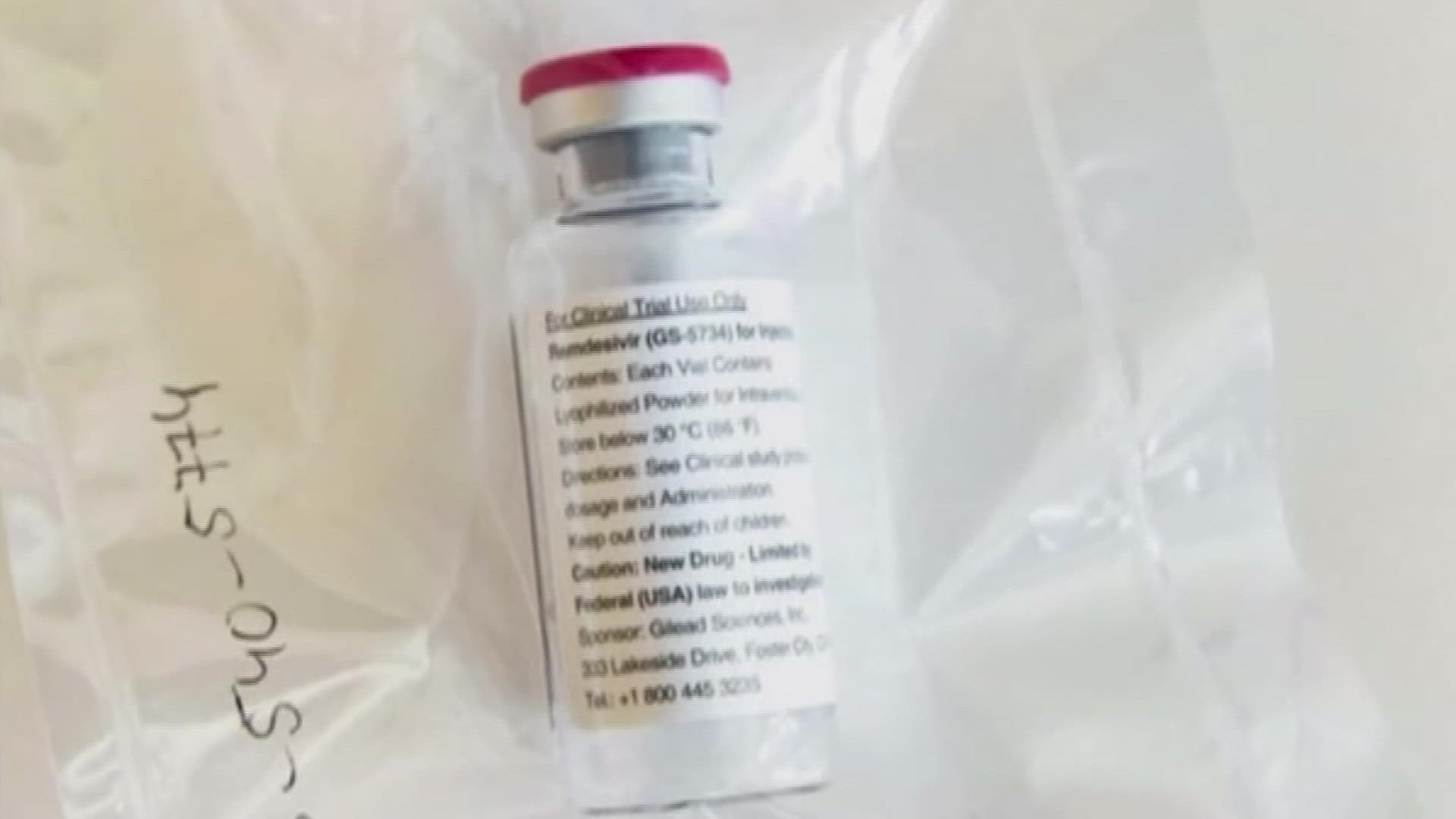MAINE, USA — Maine’s public health leaders discussed various topics during Wednesday’s COVID briefing, including new testing locations, expanding wastewater testing, and the supply of antiviral treatments to treat people with the virus.
New testing sites
- Windham Mall: 8 a.m.-4 p.m. Appointment required.
- Biddeford Shopping Center (Alfred Street): 10 a.m.-4 p.m. Appointment required.
- YMCA Auburn (rapid antigen): 10 a.m.-2 p.m. Appointment recommended.
The Augusta Armory will offer tests from 9 a.m. to 3 p.m. Mondays, Wednesdays, and Fridays. Appointments are no longer required but are still recommended.
The Maine Center for Disease Control and Prevention plans to automate its COVID case review. Right now, CDC staff have to manually review to make sure no duplicates exist and that demographic information gets sent to the U.S. Centers for Disease Control and Prevention.
Right now, the Maine CDC has a backlog of roughly 56,000 positive test results awaiting review.
Maine CDC Director Dr. Nirav Shah said the backlog does not affect how, when, or if patients get notified: They are told when they are positive through various means.
“I am certainly not going to stand in the way of expanding testing. Getting more people testing in the midst of a surge is what really matters, and whatever that means for the backlog is what it means for the backlog. What matters is getting people access to testing and getting them [notified] of the results. The backlog is not affected by any of that,” Shah said Wednesday during the briefing.
Supply of antiviral treatments varies
On Friday, the U.S.Food and Drug Administration expanded the use of Remdesivir for people in an outpatient setting, ages 12 and older, who are at high risk for hospitalization.
“This is a solid step forward. Remdesivir is an antiviral drug that has been used since early in the pandemic. It was previously FDA-approved for hospitalized patients, but yesterday’s change expands it for use in non-hospitalized patients (with the aim of keeping them away),” Shah tweeted on Jan. 22. “Bottom line: this full approval is a big step forward. Remdesivir is remarkably effective, safe, and in good supply. The FDA approval is a vote of confidence and should help spur widespread use, ultimately keeping patients out of the hospital. That’s our goal in Maine.”
Shah echoed this sentiment during Wednesday’s briefing. Northern Light Health leaders said Remdesivir is the only treatment not in short supply.
Other monoclonal antibodies, including Sotrovimab, the only kind that can treat the omicron variant, are in short supply. On Monday, Gov. Janet Mills announced the federal government will nearly double Maine’s ration.
“The oral antivirals, Molnupiravir and Paxlovid, are also in limited supply and must be obtained via prescription. Currently, availability is limited to Hannaford and Walmart/Sam’s Club pharmacies. Northern Light Health looks forward to offering these treatments as well when supplies are made available,” Matt Marston, vice president of pharmacy for Northern Light Health, said.
Staffing shortage affecting hospital beds
Northern Light Health officials said one out of every 20 staff members is currently out with COVID infection or exposure, forcing leaders to adjust how many patients they can care for.
Chief People Officer Paul Bolin said 618 staff are out, a pandemic high.
Because of that lack of staffing, leaders had to reduce the number of beds open for non-COVID patients in orthopedic, surgery, respiratory, and oncology departments at Northern Light Eastern Maine Medical Center.
The hospital is still taking new patients in those areas, but the staff is also trying to prevent the spread of COVID to patients in those other areas of the hospital.
“At times, it is appropriate that beds be not filled if there aren’t appropriate staff to care for new or additional patients in those areas,” Bolin said.
“Obviously, we can’t commingle patients who are positive for COVID, and those are not,” Dr. James Jarvis, senior physician executive for Northern Light Health, said.
Hospital system leaders said 60 percent of its staff are boosted.
Doctors said getting a booster is critical in preventing severe breakthrough infections.

